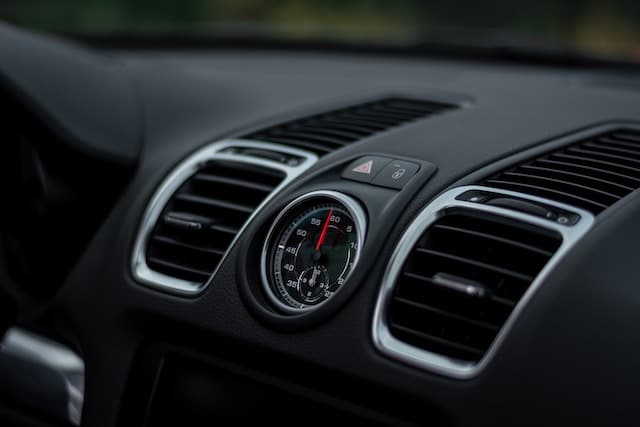
Do you know what a HEPA filter in a car is, or why it’s important for your health and your vehicle’s performance? This vital component often goes unnoticed, but it plays a significant role in maintaining clean air inside your vehicle and boosting engine efficiency. In this article, we will journey through the world of car HEPA filters, uncovering their functions, benefits, maintenance, and future trends.
Traditional Car Air Filters vs. HEPA Filters in Cars
Almost all passenger vehicles come equipped with standard cabin air filters that work in tandem with the air conditioning system. These filters, typically made of multi-fiber cotton and possibly featuring an activated charcoal layer, help filter out smells, smog, and dust particles before they enter the cabin. However, the purifying properties of such traditional filters are limited, providing basic filtration mostly for larger particles. It’s suggested that these filters should be changed annually or every 15,000 to 20,000 miles, depending on usage and environment.
On the other hand, High-Efficiency Particulate Air (HEPA) filters offer superior air purification, capable of removing at least 99.97% of dust, pollen, mold, bacteria, and any airborne particles with a size of 0.3 microns (µm), according to the U.S. Department of Energy definition. These filters provide a significant difference, especially for those with severe allergies, asthma, or other chronic breathing disorders. While they are more expensive to replace and often need an authorized service technician for the task, the benefits they offer in terms of air quality far outweigh these factors.
Percentage of Cars with Integrated HEPA Filters
HEPA filters have started making their way into the automotive industry, with some car manufacturers already incorporating these high-performance air purifiers into their latest models. While a definitive percentage of cars on the road with integrated HEPA filters isn’t readily available, a handful of manufacturers, notably Tesla and Mercedes-Benz, have been leading this trend.
The Role of HEPA Filters in Cars
In the context of vehicles, the HEPA filter, often situated within the ventilation system, cleans the air that enters the cabin and the engine. By doing so, it ensures a healthier, more comfortable environment for passengers and boosts engine performance by preventing harmful particles from entering the engine’s combustion chamber.
Health Benefits of Car HEPA Filters
HEPA filters significantly improve the air quality inside your car. They trap allergens, dust, smoke, and various pollutants, thereby reducing the risk of allergic reactions and respiratory problems among passengers. Particularly in cities with poor air quality or during allergy seasons, these filters become your car’s first line of defense against airborne threats.
Maintenance and Replacement of Car HEPA Filters
To continue reaping the benefits of your car’s HEPA filter, regular maintenance and timely replacement are critical. Signs that your filter might need replacing include a decrease in air conditioning performance, strange odors, or increased dust inside the cabin. Most manufacturers recommend replacing the HEPA filter every 12,000 to 15,000 miles, but this can vary based on your driving conditions.
The Future of HEPA Filters in Cars
With the rise of electric vehicles and an increasing focus on driver comfort, the importance of HEPA filters in cars is likely to increase. Innovation in filter technology is expected to bring even more efficient filters that can trap smaller particles and remove more pollutants, keeping the air inside our cars as clean as possible.
To wrap it up, understanding what a HEPA filter in a car is and its function plays a vital role in maintaining your vehicle’s performance and protecting the health of its occupants. Regular maintenance can ensure its longevity, and with advancements in technology, the humble HEPA filter may soon be at the forefront of our drive towards cleaner, healthier air in our vehicles.
Swapping a Regular Car Air Filter with a HEPA Air Filter
The potential for swapping a regular car air filter with a HEPA filter largely depends on the specific make and model of your vehicle. While the concept seems straightforward, the feasibility and effectiveness can vary greatly.
In some vehicles, it is technically possible to replace the standard air filter with a HEPA filter. However, this process might not be as simple as it seems. HEPA filters have more dense filtration media, which may cause an issue with fit or air flow if the vehicle’s system isn’t designed to accommodate them. Moreover, the increased filtration might put more strain on your vehicle’s fan system due to the increased resistance to airflow. This is one of the reasons why not all vehicles come with HEPA filters as standard.
It’s also important to consider that not all HEPA filters are designed equally. There are many third-party manufacturers offering replacement HEPA filters, but their quality and efficiency can vary, and some might not meet the U.S. Department of Energy standards for HEPA filters, which require removing at least 99.97% of dust, pollen, mold, bacteria, and any airborne particles with a size of 0.3 microns.
Before deciding to swap your vehicle’s regular air filter with a HEPA filter, it is strongly advised to consult with a professional or your vehicle’s manufacturer to ensure that the new filter is compatible with your specific model and won’t adversely affect the vehicle’s systems. Remember, the goal is to achieve better air quality without compromising the car’s overall performance.
Plug-In Portable HEPA Air Purifiers for Cars
Plug-in portable HEPA air purifiers specifically designed for cars do exist and offer an effective solution for those seeking to improve their car’s air quality. Brands such as Phillips GoPure and IQAir have developed models with high-efficiency particulate air (HEPA) filters that can capture and eliminate up to 99% of particles as small as 0.003 to 0.004 micrometers (µm).
For instance, Philips Electronics’ GoPure portable air purifier is engineered for car interiors and can efficiently remove harmful gaseous chemicals such as exhaust gas and other unpleasant odors. Models like the IQAir Atem take air purification a step further with their HyperHEPA filtration, which filters out particles as small as 0.003 microns and deodorizes the air without the need for ionizing the air with ozone.
Moreover, other manufacturers like Airdog have designed units like the V5 Car Air Purifier that stand out due to their patented TPA active filtration unit. It captures up to 99.9% of microbes and particles as small as 0.0146 microns, also eliminating these contaminants. It also neutralizes harmful odorous chemicals, and its filter is washable and reusable.
On the other hand, products like Pure’s Premium Air Ionizer and Deodorizer or Pure Enrichment’s PureZone Mini Portable Air Purifier are smaller, more compact options. They may not filter particulates and microbes as effectively as the larger units but are ideal for managing and controlling odors.
In conclusion, car owners can choose from a wide array of portable HEPA air purifiers depending on their specific needs, whether they wish to eliminate odors, filter out particulate and microbial matter, or both. Such devices can be particularly useful in older vehicles that lack an integrated cabin air filter or for individuals with sensitive respiratory systems.
Built-In vs. Plug-In Portable HEPA Filters for Cars: A Comparison
When comparing built-in HEPA filters to portable ones in terms of efficiency, there are several factors to consider. Both types can significantly improve the air quality inside your car, but their effectiveness can vary based on their specific designs and use scenarios.
Built-In HEPA Filters
These filters are integrated into the car’s climate-control system and are typically designed by the car manufacturer to work efficiently within the car’s specific dimensions and systems. They have the advantage of being seamlessly integrated into the vehicle’s infrastructure, which means they don’t take up additional space or require separate power sources. Being pre-installed, they also don’t require the user to understand where best to place the purifier for maximum effectiveness. Built-in filters, such as those found in some Tesla and Mercedes-Benz models, are certified to filter at least 99.97% of dust, pollen, and other respiratory irritants.
However, changing a built-in HEPA filter can be more expensive than replacing a portable one, and in most cases, this process must be done by an authorized service technician. This makes maintenance a bit more challenging compared to portable units.
Plug-In Portable HEPA Filters
These devices, designed for use in cars, are typically less powerful than built-in units but offer more flexibility. Since they’re portable, they can be moved to where they’re most needed and can even be used outside the car, in spaces like small offices or bedrooms. They can still be quite effective, with some models claiming to remove up to 99% of harmful particles. Portable filters like the Philips GoPure or IQAir Atem even offer advanced features such as deodorizing and filtering particles as small as 0.003 to 0.004 microns.
The portability of these units does mean that they need to be positioned correctly within the car to achieve the maximum effect. The maintenance of these devices is generally easier, often involving just a simple filter change that the user can perform. However, they also require power, meaning they either need to be recharged or plugged into the car’s power adapter, and they may take up space in the car’s cabin.
In conclusion, while both built-in and portable HEPA filters can greatly improve air quality, their efficiency can depend on a variety of factors, including the specific model, how it’s used, and the vehicle’s dimensions. A built-in filter might be the best option for a seamless, high-performance solution, while a portable filter offers flexibility and ease of use. As always, individual needs and circumstances will dictate the best choice.
FAQs about HEPA Filters in Cars

Q: What is the main difference between traditional car air filters and HEPA filters?
A: Traditional car air filters, which are typically made of multi-fiber cotton and may include an activated charcoal layer, provide basic filtration mostly for larger particles like smog, dust, and smells. In contrast, HEPA filters can remove at least 99.97% of all airborne particles as small as 0.3 microns, including dust, pollen, mold, and bacteria, providing superior air purification.
Q: Are HEPA filters more beneficial for people with certain conditions?
A: Yes, HEPA filters are especially beneficial for people with severe allergies, asthma, or other chronic breathing disorders. These filters can significantly improve the air quality inside the car, making the driving experience much more comfortable for people with these conditions.
Q: How often do I need to replace a HEPA filter in my car?
A: The replacement frequency for a HEPA filter depends on the manufacturer’s guidelines, which can usually be found in the car’s owner manual. However, as a general rule, these filters are more expensive to replace than traditional filters and often require an authorized service technician for the task.
Q: What is a HEPA filter in a car?
A: A HEPA (High-Efficiency Particulate Air) filter in a car is a component that cleans the air entering the cabin and the engine. It’s designed to capture up to 99.97% of airborne particles, such as dust, allergens, and pollutants.
Q: How does a car’s HEPA filter work?
A: A car’s HEPA filter works by trapping airborne particles as air passes through it. This ensures that only clean air circulates within the car’s cabin and enters the engine, enhancing the comfort of passengers and the efficiency of the engine.
Q: Where is the HEPA filter located in a car?
A: The HEPA filter is typically located within the car’s ventilation system, though the exact location can vary depending on the make and model of the vehicle.
Q: What are the health benefits of a car’s HEPA filter?
A: A car’s HEPA filter significantly improves the air quality inside the vehicle by trapping allergens, dust, smoke, and various pollutants. This can help reduce the risk of allergic reactions and respiratory problems among passengers.
Q: How often should I replace my car’s HEPA filter?
A: Most manufacturers recommend replacing the HEPA filter every 12,000 to 15,000 miles, but this can vary based on driving conditions. Signs that your filter might need replacing include a decrease in air conditioning performance, strange odors, or increased dust inside the cabin.
Q: What’s the difference between a cabin air filter and a HEPA filter?
A: While both filters clean the air, a cabin air filter is a standard feature in most new cars designed to keep dust and pollen out. On the other hand, a HEPA filter is more efficient, capable of capturing even smaller particles, providing a higher level of air filtration.
Q: Is a HEPA filter the same as an engine air filter?
A: No, an engine air filter and a cabin air filter (including HEPA filters) serve different functions. The engine air filter protects the engine from dust, leaves, and other harmful airborne particles, while the cabin air filter, like a HEPA filter, improves the air quality inside the car’s cabin.
Q: How do built-in HEPA filters in cars compare to plug-in portable ones in terms of efficiency?
A: Built-in HEPA filters in cars and plug-in portable ones both serve the purpose of purifying the air inside the vehicle. However, their efficiency can vary. Built-in HEPA filters are designed to work seamlessly with the vehicle’s air conditioning system, ensuring efficient filtering of external air entering the cabin. They are professionally installed and generally need less frequent maintenance. On the other hand, plug-in portable HEPA filters are typically smaller and less powerful, leading to potentially lower efficiency. Nevertheless, they offer the convenience of mobility and are ideal for cars without built-in HEPA filters. Both types offer significant benefits, but for the most consistent and effective filtration, built-in HEPA filters have an edge.
Q: Can a regular car air filter be swapped with a HEPA air filter?
A: Swapping a regular car air filter with a HEPA air filter is technically possible in some vehicles, but it’s not always a straightforward process. HEPA filters are denser than standard filters, which can cause fit or airflow issues if the vehicle’s system isn’t designed to accommodate them. Furthermore, not all HEPA filters are the same; the quality and efficiency of third-party HEPA filters can vary. It’s recommended to consult with a professional or your vehicle’s manufacturer before deciding to swap your regular air filter with a HEPA filter to ensure compatibility and avoid adversely affecting the vehicle’s systems.
Q: How does a HEPA filter work?
A: The effectiveness of a HEPA filter lies in its tight-knit, maze-like fibers. These fibers force tiny particles to bounce around until they become trapped, thus preventing them from passing through the filter. Dirty air goes in, and clean air comes out.
Q: Can in-car ionizers replace HEPA filters?
A: No, in-car ionizers and HEPA filters serve different functions. Ionizers work by making polluting particles stick to surfaces rather than float in the air. While they can help make the air inside your car cleaner, especially in a polluted city or for drivers sensitive to seasonal allergies, they do not capture or remove airborne particles like HEPA filters.
Q: Who benefits the most from a HEPA filter in a car?
A: Drivers who spend time in dusty or high-pollution environments would benefit most from a HEPA filter. The filter would effectively trap and remove a large number of airborne particles, leading to cleaner and healthier air inside the car.


